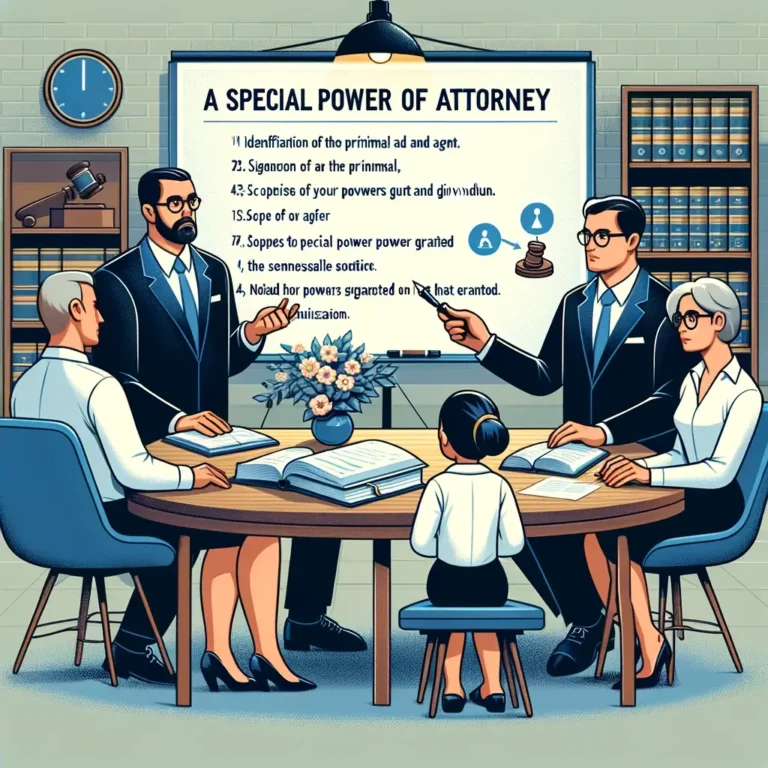In this article we have explained in detail about Legal Rights During Police Interrogation In India
Introduction
When facing police interrogation in India, knowing your legal rights of accused is crucial. This knowledge can protect you from unfair practices and ensure your treatment is in line with the law. This article will guide you through the key rights you have during a police interrogation, providing you with the information you need to navigate these challenging situations.
Legal Rights During Police Interrogations in India
Right to Know the Reasons for Arrest
The Right to Be Informed
When arrested, you have the right to be informed of the reasons for your arrest and the charges against you. This is not just a formality; it’s a fundamental right guaranteed by the Indian Constitution and various laws.
Right to Legal Representation
Access to a Lawyer
One of the most critical rights during interrogation is the right to consult and be defended by a legal practitioner of your choice. This means you can ask for a lawyer immediately upon being detained or during questioning.
Right Against Self-Incrimination
Protection from Compulsory Self-Incrimination
The Constitution of India protects individuals from being compelled to testify against themselves. This means you cannot be forced to answer questions that might incriminate you.
Right to Silence
Choosing Not to Speak
Closely related to the right against self-incrimination is the right to silence. You are not obligated to answer any questions, especially if they could lead to self-incrimination.
Right to Be Presented Before a Magistrate Within 24 Hours
Timely Judicial Review
After arrest, you must be presented before a magistrate within 24 hours. This safeguard prevents illegal detention and ensures judicial oversight of the arrest process.
Right to Free Legal Aid
Assistance for the Underprivileged
If you cannot afford legal representation, the state is obligated to provide you with free legal aid. This right ensures that justice is accessible to all, regardless of financial status.
Right to Medical Examination
Ensuring Physical Well-being
During detention, you have the right to request a medical examination if you believe you have been mistreated. This examination must be conducted by a government doctor.
Navigating Police Interrogation
Stay Calm and Respectful
Maintaining Composure
It’s essential to stay calm and respectful during interactions with law enforcement. This attitude can help de-escalate potentially tense situations.
Know What to Say
Choosing Your Words Wisely
Be aware of your right to silence and your right against self-incrimination. You don’t have to answer all questions, especially those that could incriminate you.
Conclusion: Empowering Yourself with Knowledge
Understanding your legal rights during police interrogation in India is empowering. It equips you with the knowledge to navigate these situations confidently and ensures your treatment is fair and just according to the law. Always remember that you have the right to legal representation, the right to know the reasons for your arrest, and the right against self-incrimination. By being informed and respectful, you can protect yourself during police interrogations.
FAQs on Legal Rights During Police Interrogation in India
1. Can the police arrest me without a warrant in India?
Yes, in certain cases like cognizable offenses, the police can arrest without a warrant. However, they must have a valid reason and must inform you of the cause of arrest.
2. Do I have the right to know the charges against me?
Yes, you have the right to be informed of the charges against you at the time of arrest or detention.
3. Can I ask for a lawyer during police interrogation?
Yes, you have the right to consult and be represented by a lawyer of your choice.
4. Is it compulsory to answer all questions during interrogation?
No, you have the right against self-incrimination, which means you cannot be compelled to answer questions that may incriminate you.
5. What is the right to silence?
The right to silence allows you to refuse to answer questions during interrogation that could incriminate you.
6. Must I be presented before a magistrate within a specific time?
Yes, you must be presented before a magistrate within 24 hours of your arrest, excluding the time necessary for the journey.
7. What if I cannot afford a lawyer?
If you cannot afford legal representation, you are entitled to free legal aid provided by the state.
8. Can the police detain me indefinitely?
No, indefinite detention is illegal. You must be either released or presented before a magistrate within 24 hours.
9. What should I do if I’m not informed of my rights during arrest?
If your rights are not communicated to you at the time of arrest, this could be grounds for complaint and could potentially affect the legality of the arrest.
10. Can I be forced to sign a confession?
No, you cannot be forced to sign a confession or any statement. Such actions are against your rights and the law.
11. Are minors entitled to special protection during interrogation?
Yes, minors have additional protections, including the presence of a guardian or appropriate adult during interrogation.
12. Can police interrogation occur at any time?
Interrogations should occur at reasonable hours, except in emergencies or with specific permissions.
13. What happens if I’m arrested without a valid reason?
An arrest without a valid reason is illegal, and you may have grounds for a legal complaint against the arresting officers.
14. Can I be physically harmed during interrogation?
No, physical harm, torture, or cruel treatment during interrogation is illegal and against your rights.
15. Do I have the right to a medical examination if injured during arrest?
Yes, if you are injured or claim mistreatment, you have the right to request a medical examination.
16. Can I contact my family after being arrested?
Yes, you have the right to inform your family or friends of your arrest.
17. What if I don’t understand the language used during interrogation?
You have the right to an interpreter if you cannot understand the language used during interrogation.
18. Is there a difference between being detained and arrested?
Yes, detention is usually for a shorter duration and does not always require presentation before a magistrate, whereas arrest may lead to formal charges and requires appearance before a magistrate.
19. Can my home be searched without a warrant?
In certain circumstances, yes, but the police must have a valid reason, and certain protocols must be followed.
20. What is a non-cognizable offense?
A non-cognizable offense is one for which the police cannot arrest without a warrant and usually pertains to less serious crimes.
21. Can women be interrogated at night?
Women should not be arrested or interrogated at night except in exceptional circumstances, and even then, certain protections apply.
22. What are my rights if I’m a foreign national arrested in India?
Foreign nationals have the same rights during interrogation and arrest, including the right to contact their embassy or consulate.
23. Can I be arrested for the same crime twice?
Double jeopardy is prohibited, meaning you cannot be arrested for the same crime twice if acquitted or convicted.
24. What is preventive detention?
Preventive detention is the act of detaining a person to prevent them from committing a crime, under specific legal conditions.
25. Can I refuse to go to the police station if not under arrest?
Yes, you can refuse to go to the police station if you are not under arrest or do not voluntarily wish to go.
26. What should I do if I feel my rights are violated during interrogation?
You should try to contact a lawyer immediately and file a complaint with the appropriate authorities or court.
27. Can I be detained for questioning without being arrested?
Yes, for certain investigations, you may be detained for questioning but with specific legal limitations.
28. What is a cognizable offense?
A cognizable offense is one for which the police can arrest without a warrant, typically involving serious crimes.
29. Do I have the right to see the warrant of arrest or search?
Yes, you have the right to see the warrant of arrest or search to verify its authenticity and legality.
30. Can police enter my house without permission?
Police can enter your house without permission only under certain conditions, such as having a search warrant or in hot pursuit of a suspect.
















